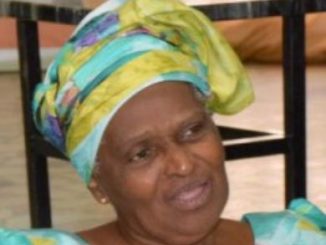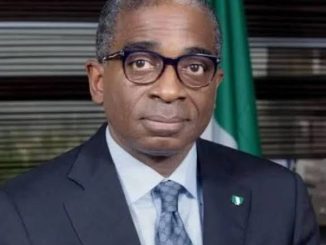
Gideon Maxwell
November 20, 2025
In a landmark ruling that has captivated the nation, Nnamdi Kanu, the leader of the Indigenous People of Biafra (IPOB), has been sentenced to life imprisonment for terrorism-related offences.
The verdict, delivered on 20 November 2025 by Justice James Omotosho of the Federal High Court in Abuja, concludes a case that has stretched over several years and drawn intense national and international attention.
Kanu was found guilty on all seven counts leveled against him by the Federal Government.
The charges spanned from inciting violence and issuing bomb-making instructions to imposing “sit-at-home” directives that disrupted daily life across southeastern Nigeria.
Prosecutors had sought the death penalty, arguing that his actions constituted a grave threat to national security.
The court, however, opted for life imprisonment, citing a commitment to temper justice with mercy.
Life sentences were imposed on counts one, four, five, and six, while the remaining counts carried lesser terms of twenty and five years, all to run concurrently.
The court also ordered that Kanu be kept in protective custody and barred from accessing digital devices, a move aimed at curbing his capacity to incite further unrest.
Additionally, a broadcast transmitter linked to his activities was forfeited to the Federal Government, closing a significant chapter in the case.
The trial was not without drama. Kanu reportedly refused to open his defense, leading to heightened tension within the courtroom.
At one point, he was removed for “unruly behavior,” and the judge described his broadcasts, especially via Radio Biafra, as acts of “preparatory terrorism.”
ALSO READ: Tinubu confirms Kebbi attack occurred ‘despite intelligence warnings’
The sit-at-home orders issued under his direction were deemed coercive measures that violated citizens’ freedom of movement.
Reactions to the ruling have been immediate and polarising. Kanu’s legal team announced plans to appeal, insisting that their client is a political activist rather than a terrorist.
Prominent figures, including former Senate President Adolphus Wabara, decried the judgment, warning that it cast a shadow over the wider Igbo community.
Meanwhile, government officials hailed the sentence as a clear message that no individual is above the law, reinforcing Nigeria’s firm stance against violent separatist movements.
The sentencing marks a significant moment in Nigeria’s struggle to balance national security, justice, and political expression.
While the avoidance of the death penalty may signal sensitivity to international norms, concerns remain that the decision could heighten tensions in the southeast.
Kanu’s supporters continue to see him as a symbol of the Biafran cause, and the government faces the delicate task of preventing further unrest while maintaining order.
Nnamdi Kanu’s journey, from his initial arrest in 2015, his bail defiance in 2017, to his extradition from Kenya in 2021, has made him a controversial figure, emblematic of the broader debate over Nigeria’s unity and the aspirations of the southeastern region.
As the nation absorbs this verdict, attention now shifts to potential appeals and the political reverberations that may follow, underscoring the enduring complexity of Nigeria’s security and political landscape.



